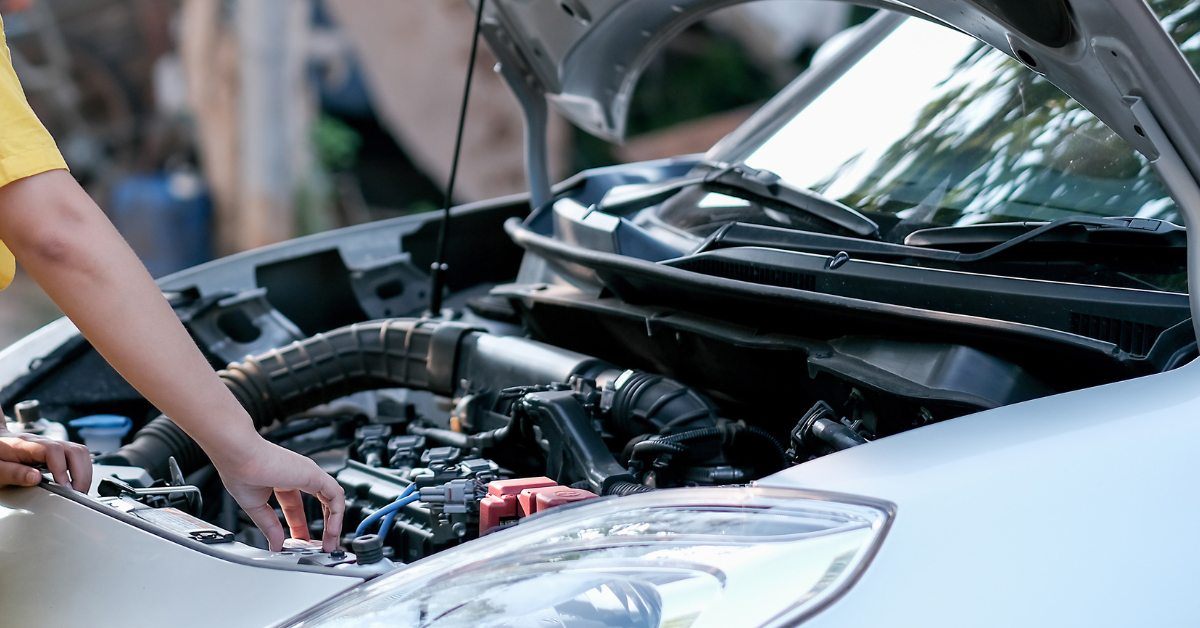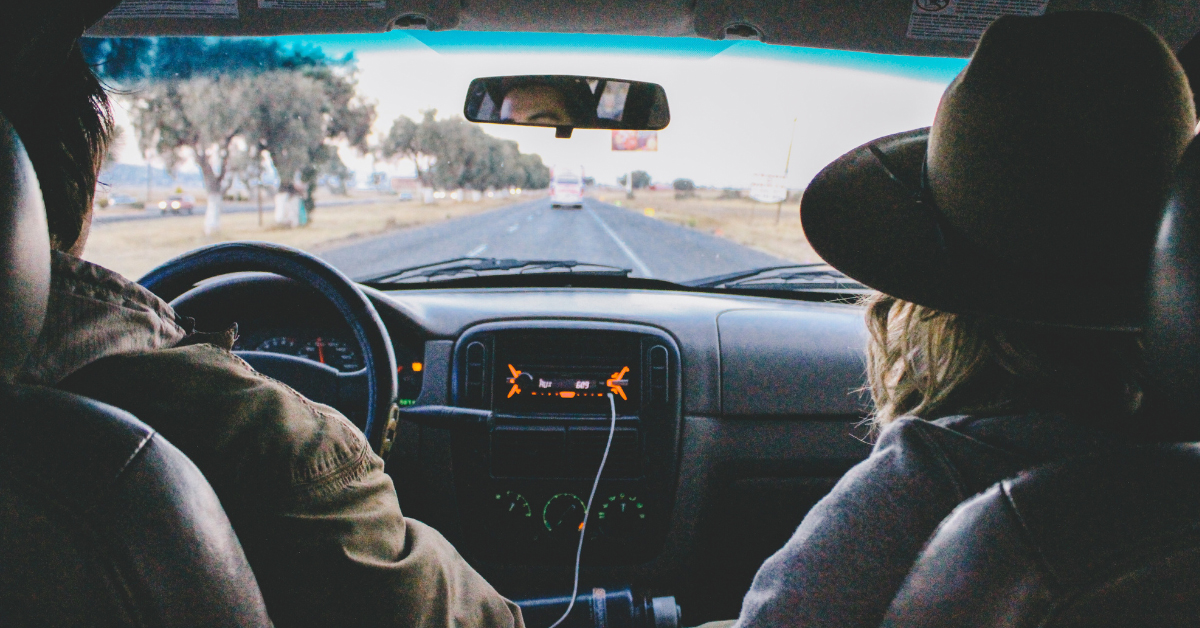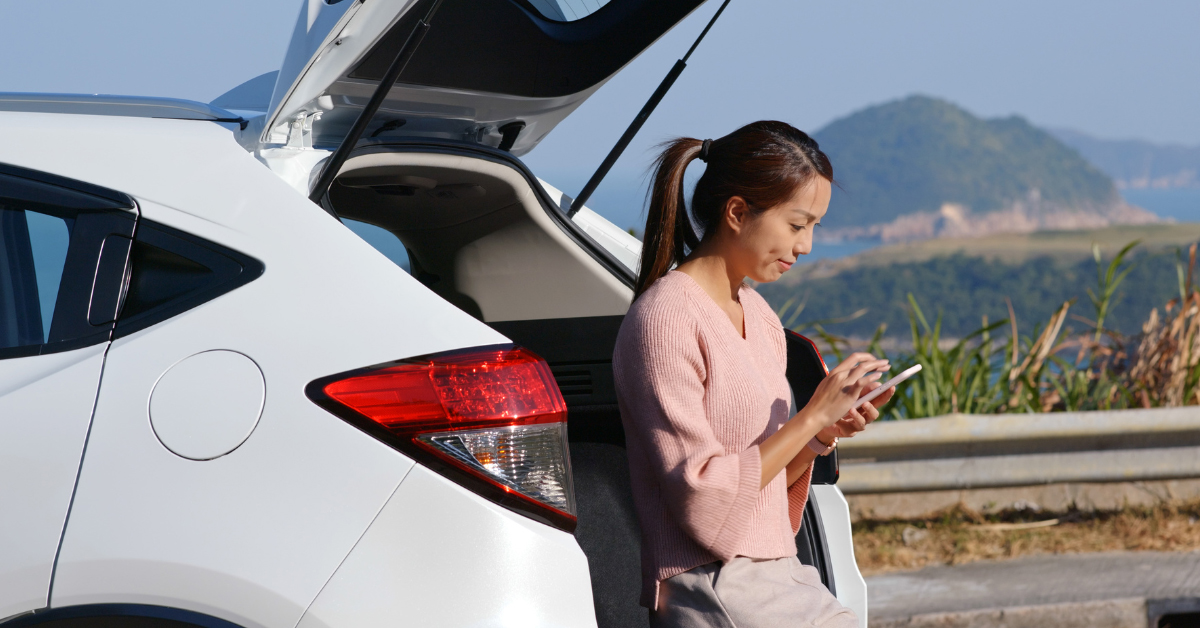Restrictions in the country have finally loosened, giving people more freedom to travel in their cars for work and leisure.
Typically this would be good news. But for car owners who have to worry about maintenance, insurance, health and safety, and ever-rising fuel costs, this may pose a challenge instead. How does one stay smart, safe, and thrifty despite the seemingly endless slew of roadblocks?
Fret not. We’ve come up with the ultimate guide to efficient vehicle use during these uncertain times.
Safety Checks Before Hitting the Road
Prolonged vehicle non-use could increase safety issues on the road, so here’s how to make sure your car is healthy before driving off.

1. Check your fluids. Take a look under your car to see if there are any wet patches on the ground. These could be a sign of leaks.
Open the hood of your car, and use the engine dipstick to measure oil levels. Remember to wipe it clean before dipping it fully into the pipe. Once you’ve pulled the dipstick back out, make sure the oil mark is located between the two lines.
Check your coolant, too, as these regulate the temperature of your car under hot Philippine weather. Then examine your fuel, brake fluid, and washer fluid to ensure the smooth running of your car.
2. Turn your lights on and off. Try using your headlights, fog lights, brake lights, headlamps, turn lights, park lights, and interior indicators and see if anything needs repair or replacement.
3. Inspect your tires. Usually, a visual inspection of your tires will tell you if they lack air pressure. Check your spare tire/s, too. Use a gauge to measure the air pressure on your tires, then open the door on the driver’s side and compare the recommended tire pressure (in psi) to determine if you should have them inflated.
4. Let the engine run idly. Your car needs a bit of a warmup before getting back into your routine. Start the engine and inspect inside, outside, and underneath your car if something looks or sounds off.
5. Clean up and air out your car. Months of non-use can make your car a home for creepy crawlies and stale odors. Inspect the exteriors and interiors of your car for droppings or dead insects. Wash your windshield to avoid visibility issues on the road.
Open car doors and windows to let air circulate. For a quicker fix, leave a bowl of activated charcoal in your locked car overnight and let it absorb foul smells.
Fuel Efficiency Musts

1. Lighten your load. Did you know that the heavier your car is, the more fuel it consumes? Before going out, free up trunk space by taking out groceries and other items you don’t need for your next trip.
2. Know when to turn a/c on and off. If you’re going slower than 64.4 kph, rolling your windows down won’t hurt your fuel economy. Drive any faster than that, however, and it is better to close your windows and turn on the a/c to lower air resistance or drag in your vehicle.
And mind how you use your air conditioning. We know the heat makes turning up your a/c to max levels seem like an ideal move, but this negatively affects your fuel economy. Remember that the harder your a/c works, the harder your engine does, too.
3. Pre-plan your routes. Map out everything you have to do for the day and group together stops that are near each other to avoid unnecessary detours. It helps to know that starting your engine burns extra fuel than driving it for a longer distance, so opt to take one long trip instead of two or more when you can.
4. Accelerate wisely. Your car uses more fuel the faster it goes—especially if you tend to step on your accelerator with force. Ease into faster speeds and into a stop to keep from stressing your engine out. And as much as possible, maintain the same speed while on the road.
5. Leave the car home. The simplest way to reduce fuel consumption is to take alternative modes of transportation. Opt to walk or bike to the nearby drugstore or convenience store instead of driving there, when possible. It’s good for your heart!
Download our Fuel Efficiency Guide here for a handy reference on how you can save on fuel costs.
Additional Tips for Motorists

1. Stay sanitized. Going back on the road means possible exposure to contaminants and viruses. Keep wet wipes, alcohol (at least 60%), and a disinfectant spray in your car and regularly wipe down frequent touch points such as the steering wheel, gearshift, and all buttons in your interiors. Also keep a stock of FDA-approved face masks in your compartments in case of emergencies.
2. Keep up with road news. Traffic authorities will adjust road rules according to the COVID-19 situation in the country. Stay up to date with traffic schemes, number coding schedules, and health protocols issued by the Metropolitan Manila Development Authority and local governments.
3. Always have the essentials. Be prepared for sudden shifts in the weather, firstly with a windshield cover for sunny days. Always have an umbrella or two in the car to shield you from the sun and the rain.
Takeaway
Regular car checkups and smart driving practices can go a long way in making sure you not only save money, but also keep your car in tip top shape for a longer time in the new normal.
Ensure the full protection of your car with an insurance policy that gives you peace of mind on the road.
Let Uniguarantee help you find the best solutions for your motor pool.
Contact us at 8553-3270 or 8553-3271, or fill up the form below.
